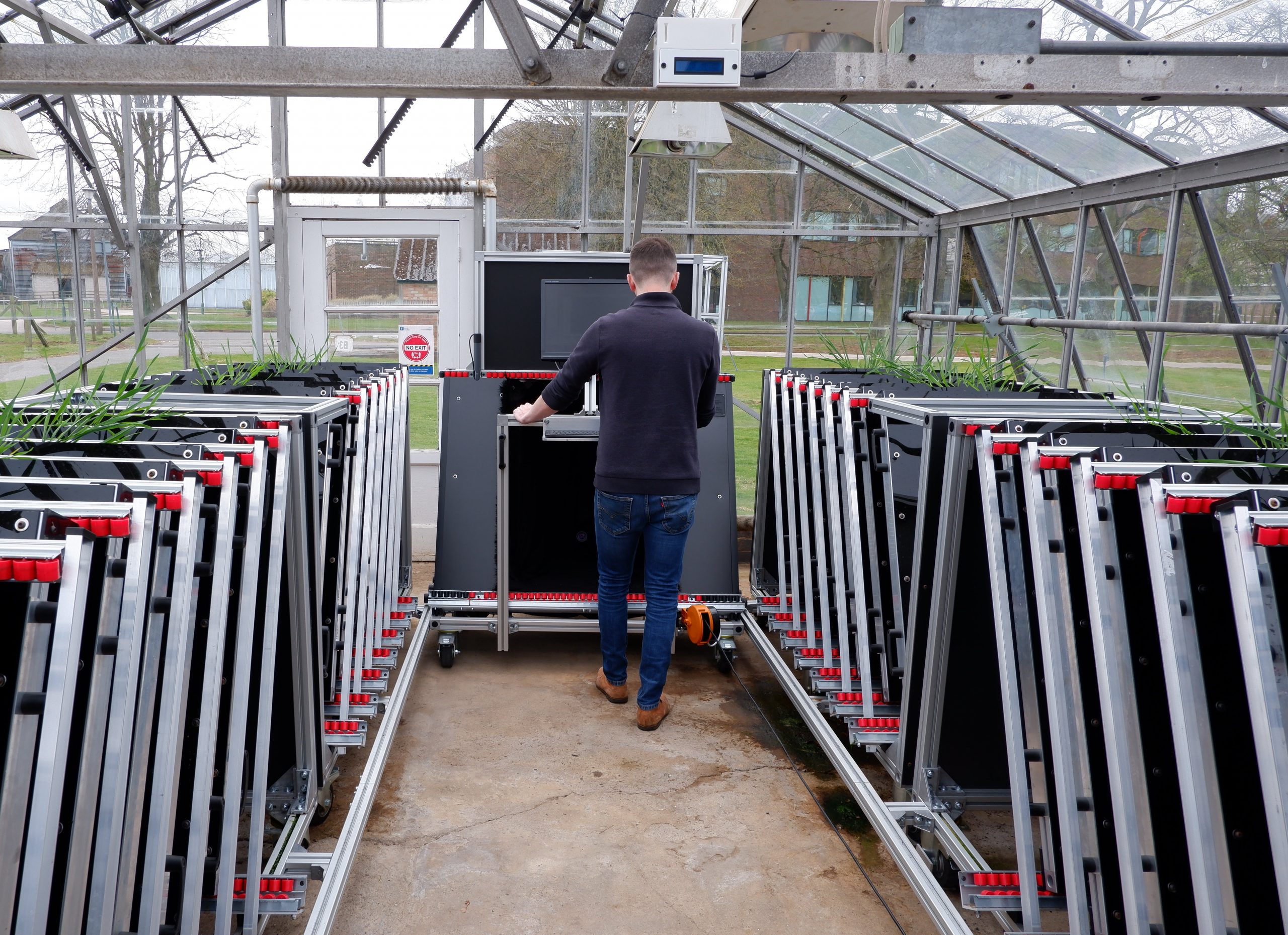
August 15, 2022, by Lexi Earl
Our technology platforms: Maker Space
Over the next few weeks we will be featuring stories about our different technology platforms, their work and research, and the facilities available to researchers. These are also featured in our 2021 Annual Report. Today, we turn our attention to the Maker Space.
The MakerSpace is a design and innovation hub built to support research at the University of Nottingham. The main focus of the MakerSpace is plant phenotyping research, designing and deploying custom solutions to research questions that require monitoring
of plant growth and development. Led by Dr Darren Wells and Beacon staff member Dr Jon Atkinson, the MakerSpace can design and build bespoke hardware for individual experiments.
This year, the MakerSpace has been involved in numerous projects, ranging from microscopy devices and robotic imaging systems, to much larger projects such as a rhizotron plant root imaging system and the modification of the Beacon-funded TraitFinder canopy scanning platform for use in the Hounsfield Facility.
The MakerSpace has created custom column designs for a project studying the effects
of soil compaction on roots using the X-ray CT scanners in the Hounsfield facility, and experimental setups to study wireworm activity for a studentship funded by Syngenta.

Bespoke columns for plants created by the Maker Space
The MakerSpace has also recently built a system for artificially increasing the temperature of a crop canopy for use in a BBSRC Newton funded project researching the effects of increased night- time temperatures on wheat yields. As a result of climate change, night-time temperatures are increasing faster than day-time temperatures, and have been shown to have a detrimental effect on yields. The mechanism behind this yield loss is poorly understood. This system utilizes a feedback loop to maintain canopy temperature at a set threshold above ambient conditions by regulating an infra-red heating panel.
The MakerSpace has been involved in teaching this year, through the UKRI funded grant Data CAMPP: Innovative Training in Data Capture, Analysis and Management for Plant Phenotyping. Data CAMPP, led by Prof Andrew French of the Computer Vision Lab, aims to produce training material on all aspects of data driven plant phenotyping, covering data capture, automation, analysis, and processing. The MakerSpace has already produced material for initial introductory modules on data capture, covering examples ranging from basic plant phenotyping concepts to state-of-the-art equipment. Future modules currently in the design phase will include practical sessions (either in person or via a kit by post), where attendees build their own phenotyping equipment using easily accessible electronic components and in-house designed and 3D printed parts. These kits will be based around recently published MakerSpace designs released for community use in the journal Sensors.
Interesting future MakerSpace projects currently in the planning and design stages include a portable entrainment device in collaboration with food scientists, a seed germination monitoring robot, and phenotyping solutions for the planned controlled environment facility expansion at Sutton Bonington.
Find out more about the Maker Space on our website.
No comments yet, fill out a comment to be the first

Leave a Reply